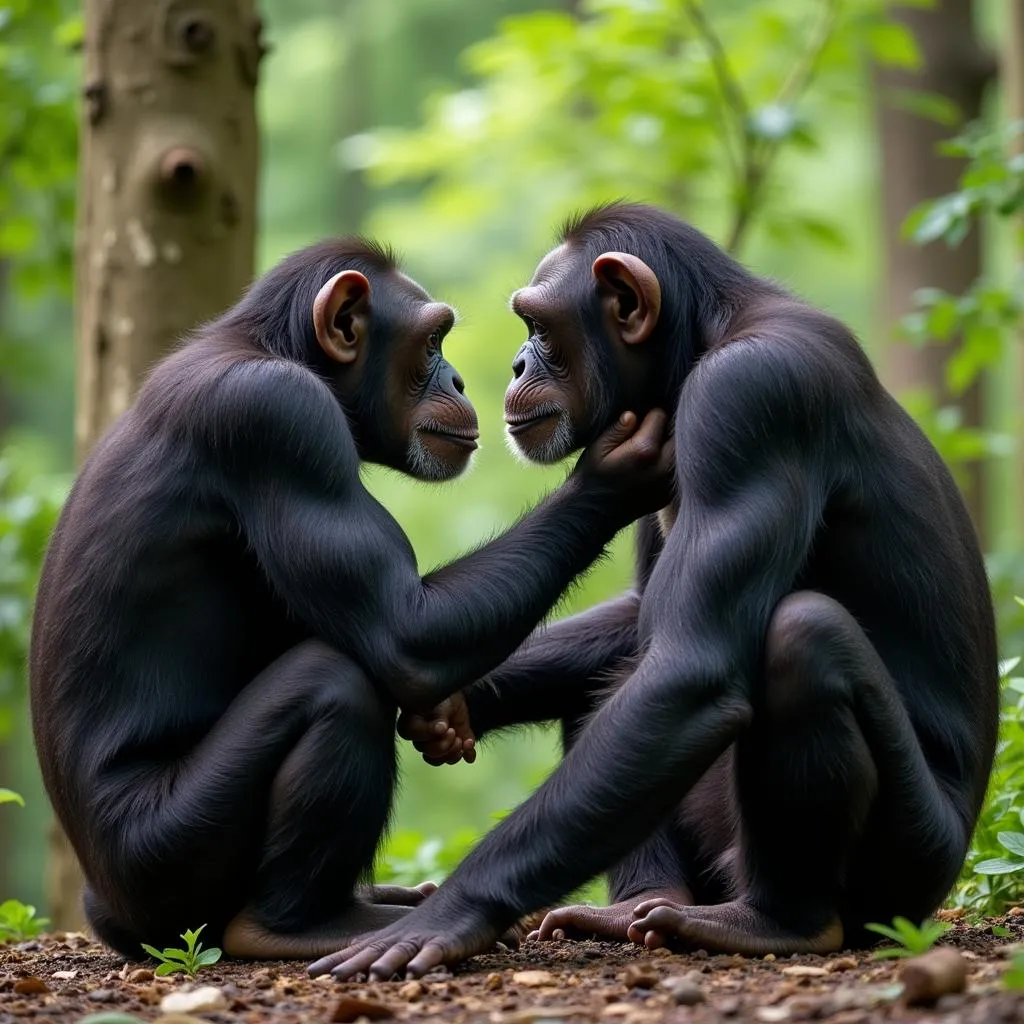African American Baby Hair Growth: A Guide for Parents
African American Baby Hair Growth often follows unique patterns. Understanding these patterns and implementing proper hair care practices can help ensure healthy growth and development from infancy. This guide explores various factors influencing hair growth, common concerns, and effective tips for nurturing your baby’s beautiful curls and coils.
Understanding African American Baby Hair Texture
African American hair is known for its diverse textures, ranging from tightly coiled 4c hair to looser curls. This variation stems from the elliptical shape of the hair follicles. While some babies are born with a full head of hair, others may have very little or even experience hair loss in the first few months. This is perfectly normal and doesn’t necessarily indicate a problem. Genetics plays a significant role, influencing both hair texture and growth rate. After reading about baby hair, you may want to look at hairstyles for older children. Check out some African American little girl hairstyles.
It’s important to remember that every baby’s hair journey is unique. Comparing your baby’s hair to others can lead to unnecessary worry. Focus on providing gentle care and creating a healthy scalp environment to support natural growth. By six months, you’ll likely have a clearer picture of your baby’s hair type and growth pattern.
Factors Influencing Hair Growth
Several factors can influence african american baby hair growth. Nutrition plays a vital role, ensuring adequate intake of vitamins and minerals essential for hair health. Gentle handling is crucial, avoiding tight hairstyles that can stress delicate hair follicles. Moisturizing is also key, preventing dryness and breakage. Regular scalp massages can stimulate blood circulation, promoting healthy hair growth.
Protecting your baby’s delicate scalp from the sun is also important. Just like adult skin, baby’s scalp can be susceptible to sunburn, which can damage hair follicles and impede growth. Using gentle, baby-friendly sunscreens or protective hats can offer adequate protection.
Common Concerns and Solutions
Many parents worry about slow african american baby hair growth or uneven patches. While often temporary, these concerns can sometimes signal underlying issues. Consult a pediatrician if you notice excessive hair loss, bald patches, or any signs of scalp irritation. They can help determine if there’s a medical reason behind the slow growth and recommend appropriate solutions.
Developing a consistent hair care routine is essential. Use gentle, sulfate-free shampoos and conditioners designed specifically for babies. Avoid harsh chemicals that can strip natural oils and irritate the scalp. Regular moisturizing with natural oils like coconut oil or shea butter can help keep hair hydrated and promote healthy growth. If you are interested in the cultural aspects of braiding, check out African girl with braids.
Tips for Nurturing Healthy Hair
- Gentle Cleansing: Use a mild, tear-free shampoo and conditioner specifically designed for babies.
- Regular Moisturizing: Apply a natural oil or baby-safe moisturizer to keep hair hydrated and prevent breakage.
- Careful Detangling: Use a wide-tooth comb or your fingers to gently detangle hair, starting from the ends and working your way up.
- Protective Styling: Opt for loose hairstyles that don’t put stress on the hair follicles. Avoid tight braids or ponytails that can cause traction alopecia.
- Healthy Diet: Ensure your baby’s diet includes essential nutrients for healthy hair growth, such as vitamins A, C, D, and E, as well as iron and zinc.
Conclusion
Nurturing african american baby hair growth requires patience, gentle care, and an understanding of individual hair textures. By following these tips and addressing any concerns promptly, you can help your baby’s hair thrive. Remember that every baby’s hair journey is unique, and celebrating the beauty of natural hair is essential. See our article on African American infant hairstyles for styling inspiration.
FAQ
- When should I start washing my baby’s hair? You can start washing your baby’s hair as soon as needed, usually once or twice a week.
- Is it normal for my baby to lose hair in the first few months? Yes, it’s completely normal for babies to lose hair, sometimes even in patches, during the first few months.
- What are some good natural oils for baby hair? Coconut oil, shea butter, and jojoba oil are excellent natural moisturizers for baby hair.
- How can I prevent cradle cap? Gently washing your baby’s scalp regularly and using a soft brush can help prevent cradle cap.
- When should I be concerned about my baby’s hair growth? Consult a pediatrician if you notice excessive hair loss, bald patches, or any signs of scalp irritation.
- Can I use adult hair products on my baby? No, it’s essential to use gentle, baby-friendly products that are free of harsh chemicals.
- How often should I moisturize my baby’s hair? Moisturize your baby’s hair as often as needed to keep it hydrated and prevent dryness, especially in drier climates.
Do you have more questions?
Here are some other resources that might be helpful:
When you need help, please contact us by phone: +255768904061, email: [email protected] Or come to the address: Mbarali DC Mawindi, Kangaga, Tanzania. We have a 24/7 customer care team.
